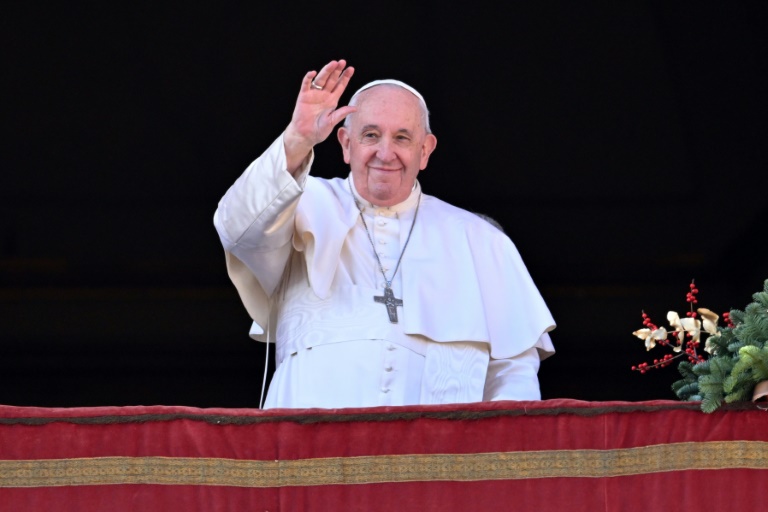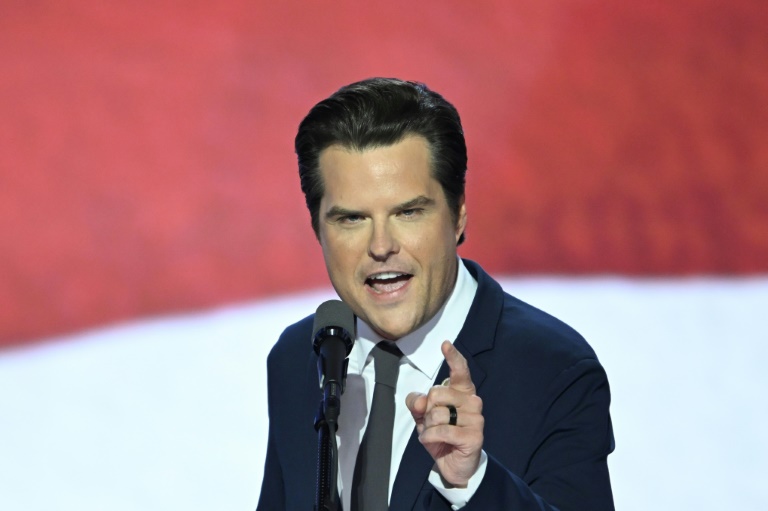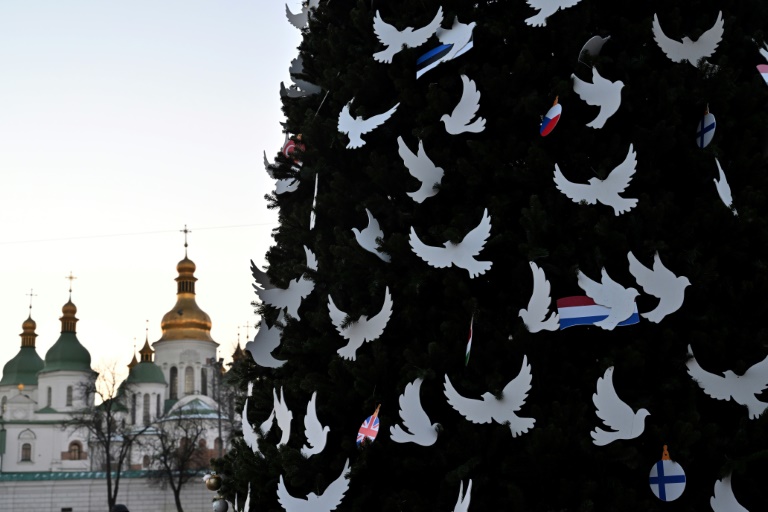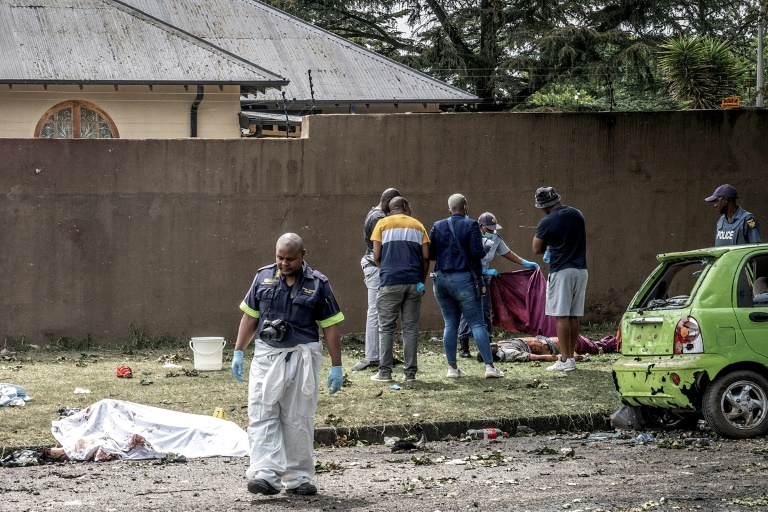AFP
Pope Francis on Sunday appealed for an end to the “senseless” war in Ukraine, in his traditional Christmas Day message broadcast around the world.
The head of the Catholic Church addressed thousands of people gathered in St Peter’s Square, some of them holding Ukrainian flags, before delivering the “Urbi et Orbi” blessing (“to the city and the world”).
A call to peace is traditionally the focus of the pope’s message at Christmas, the holiday marking the birth of Christ, which he delivers from the central balcony of St Peter’s Basilica and is broadcast live worldwide.
The 86-year-old on Sunday first turned to “our Ukrainian brothers and sisters who are experiencing this Christmas in the dark and cold, far from their homes”.
“May the Lord inspire us to offer concrete gestures of solidarity to assist all those who are suffering, and may he enlighten the minds of those who have the power to silence the thunder of weapons and put an immediate end to this senseless war!” he said.
“Tragically, we prefer to heed other counsels, dictated by worldly ways of thinking,” he added, recalling “with sorrow” that “the icy winds of war continue to buffet humanity”.
“Our time is experiencing a grave famine of peace also in other regions and other theatres of this third world war,” he said.
Francis referenced numerous countries in difficulty this Christmas, whether due to conflict or another crisis, from Afghanistan to Yemen, Syria, Myanmar, the Israeli-Palestinian conflict, Lebanon and Haiti.
For the first time, he also called for “reconciliation” in Iran, rocked by women-led protests for the past three months.
The pope has called for peace in Ukraine ever since Russia invaded its neighbour in February, condemning the war but seeking to maintain a delicate dialogue with Moscow.
However, he has been criticised in some quarters for not being more explicit in blaming Russian President Vladimir Putin.
In a magazine interview published last month, the Argentine pontiff denounced the cruelty of Russia’s troops in Ukraine, drawing a formal protest from Moscow.
On Sunday, the pope also urged those celebrating Christmas to remember those “who go hungry while huge amounts of food daily go to waste and resources are being spent on weapons”.
“The war in Ukraine has further aggravated this situation, putting entire peoples at risk of famine, especially in Afghanistan and in the countries of the Horn of Africa,” he said.
“We know that every war causes hunger and exploits food as a weapon, hindering its distribution to people already suffering.
“On this day, let us learn from the Prince of Peace (Christ) and, starting with those who hold political responsibilities, commit ourselves to making food solely an instrument of peace.”
On Saturday evening, the pope led the traditional Christmas Eve mass at St Peter’s Basilica, using a wheelchair as he continues to struggle with knee pain.
He prayed for “the children devoured by wars, poverty and injustice” and lamented that “men hungry for power and money swallow up their loved ones, their brothers”.
He called on people to “abandon the warmth of worldliness” and “rediscover the meaning of Christmas” in the face of “consumerism”, advocating for a Church that serves the poor.
The Vatican put the crowd Sunday at 70,000, while 7,000 people attended Saturday evening’s mass, with more following the service on screens outside.
“It’s very inspiring to be here with all these people,” Victoria Machado, who travelled with her family to the Vatican from Mexico, told AFP.
“We’re happy and moved to see the pope, even if we’re outside, and to feel this connection between each other,” the 19-year-old added.
Julie, a 50-year-old who manages a business in France, said the pope was a “very humble man, I think he’s capable of offering a message of peace and trying to unite people and ease tensions”.






